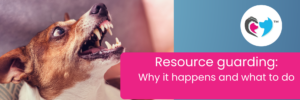Fireworks can be a source of terror for many animals. The sudden loud bangs, bright lights, and unpredictability can leave both our companion animals and horses distressed. As responsible guardians, it’s essential to take proactive steps to help animals manage their fear. Using positive reinforcement and, when appropriate, medication, you can desensitize your animals to fireworks, making these events less traumatic for them.
Understanding the problem
Noise phobia is a common issue in dogs, cats, and horses. It can manifest as trembling, hiding, pacing, vocalizing, or even destructive behaviours. The key to alleviating this fear lies in addressing it through gradual desensitization and counterconditioning, with positive reinforcement forming the foundation of your approach.
Medication may be needed in severe cases, but it should always be used under the guidance of a qualified veterinarian or veterinary behaviourist.
Dogs and cats
Step 1: Desensitization with firework sounds
- Create a controlled environment: Start in a quiet, safe space where your dog feels relaxed.
- Introduce sounds gradually: Use recordings of fireworks at an extremely low volume. Websites like Sounds Scary provide free audio tracks designed for desensitization.
- Pair sounds with rewards: Every time the sound plays, reward your dog with treats, praise, or play. Reward cats with a tasty treat or session with a wand toy.
- Keep it short: Keep sessions brief and observe your pets body language closely for signs of stress.
Step 2: Build positive associations
- Provide a high-value treat or toy only during desensitization sessions, helping your dog associate the sound of fireworks with something positive.
- Gradually increase the volume over weeks or months, but only when your dog or cat is entirely comfortable at the current level. Never go too loud.
Step 3: Safe spaces and comfort
- Create a “den” where your dog can retreat during fireworks. Use blankets, soft bedding, and familiar scents to make it a secure haven. Cats often prefer to hide when frightened. Provide a quiet room with cozy hiding spots, such as covered beds or cardboard boxes lined with blankets.
- Consider products like ThunderShirts or calming sprays (e.g., Adaptil) to provide extra comfort.
When to consider medication
- For severe phobias, short-term medications or long-term solutions may be recommended by your veterinarian.
Horses
Step 1: Desensitization to fireworks stimuli
- Start by introducing your horse to less intense stimuli, like a small sparkler from a safe distance.
- Gradually increase exposure, ensuring each step is paired with a positive experience, such as a treat or a grooming session.
Step 2: Minimize exposure during fireworks
- Keep your horse in a secure, familiar environment. Some horses prefer being outside to avoid the amplified sounds in a stable.
- Play soothing music to mask the noise of fireworks.
Step 3: Positive reinforcement and counterconditioning
- Reward calm behaviour during exposure to mild firework sounds or visuals.
- Ensure your horse has a consistent routine to reduce overall stress.
General tips for all animals
- Start early: Begin desensitization weeks or months before fireworks are expected.
- Stay calm: Animals often mirror our emotions. Staying relaxed will help them feel secure.
- Avoid punishment: Never scold your pet for fearful behaviour, as fear is an emotion and the animal cannot control what they are feeling. Punishment just adds anxiety.
- Use white noise: A fan, white noise machine, or calming music can help mask the sound of fireworks.





